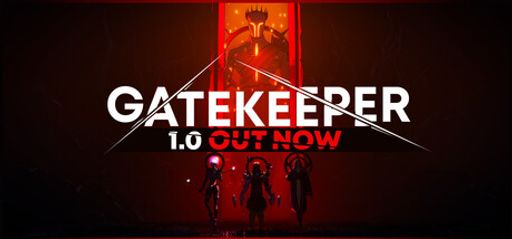I approached Gatekeeper as both a player and a planner. I want fast clear times, repeatable routes, and clear moments where skill beats luck. Gravity Lagoon’s Gatekeeper delivers much of what I expect in a modern roguelike: a tight, action-first loop, meaningful level-up choices, and room for mechanical mastery. Still, it leaves several important pieces unfinished. Overall, it’s a promising, fun game that already works well for speedruns but needs polish and balance to reach its full potential.
Overall Impression
Gatekeeper shines with its fast-paced combat and meaningful upgrade choices. The “three-item pick” system, paired with guaranteed item printers at safe points, gives players real agency in shaping builds. Each level-up decision feels impactful, creating a dynamic flow that rewards both strategy and adaptability. For speedrunners and completionists, this level of control adds depth and replayability that keeps the action engaging.
Some elements hold the game back. Movement can feel clunky, and collisions with enemy groups often disrupt the pace. Certain enemies scale into tedious damage sponges, slowing momentum and dulling the thrill of combat. While most items are useful, they often lack explosive power spikes that make runs legendary. Instead of game-changing moments, many upgrades are simply practical, leaving players wanting more excitement.
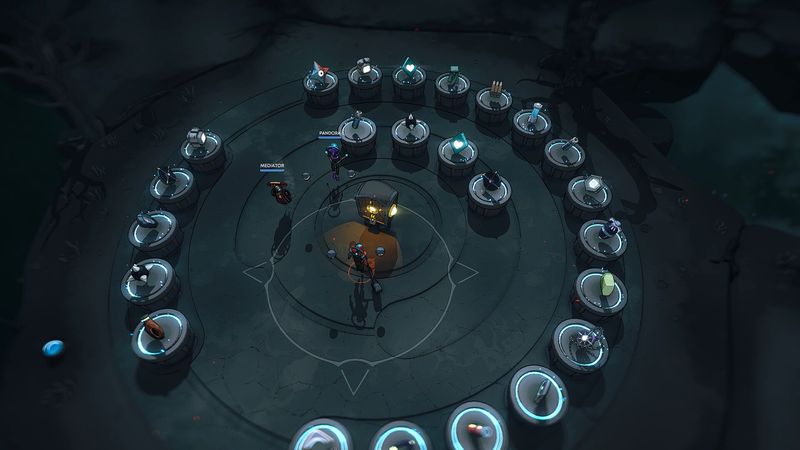
Compared to genre peers like Risk of Rain 2 and Hades, Gatekeeper lands in the middle. It borrows Risk’s escalating loot and chaos while keeping Hades’ thoughtful build direction and ability upgrades. The hybrid approach often works, offering a balance of control and variety, but it sometimes misses the highs of its inspirations. Without consistently transformative items or characters, the game risks losing its thrill, even though its foundation remains strong and strategic.
Gameplay Mechanics
Gatekeeper’s combat feels responsive and weighty. The top-down camera improves visibility of enemy telegraphs and makes positioning more tactical. The level-up system is the real highlight. Every level you choose from three stat upgrades, and every five levels you unlock a special ability upgrade. These can add healing, debuffs, or proc-chains, creating strong synergies. I had runs where a single upgrade turned a tense fight into a smooth corridor of kills.
The three-item choice at pickups is another win. Instead of random chaos, you can steer builds toward DPS, survivability, or utility. Safe zones with dummies and guaranteed printers let you test and commit to combos, which speeds learning and planning—vital for speedrunners.
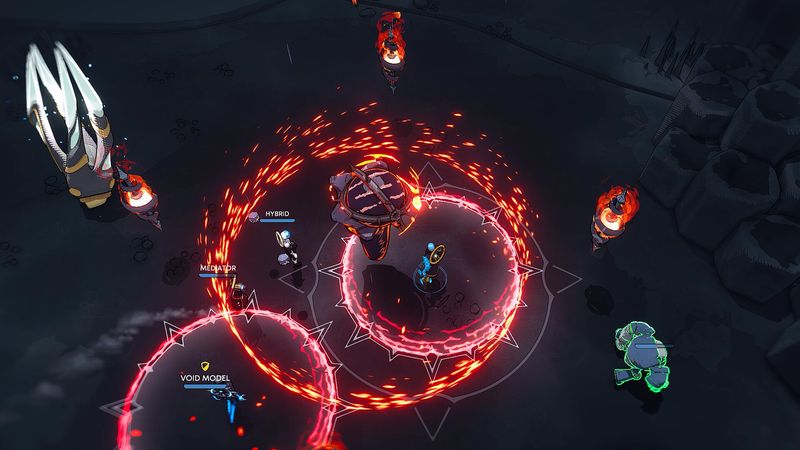
But problems remain. Basic attacks feel under-tuned, and flat stats like damage or attack speed often outperform skillful play. Some abilities lack cooldown pacing to stay competitive. Enemy “crab” variants become sponges that stall tempo; mob variety is good, but repetition creeps in during long sessions. The collision and grouping issues many players note are real, stalling momentum and punishing aggressive routing.
Story and Characters
The premise is concise and effective: chase Chaos, reclaim the Heart of Time, become the Gatekeeper. The cast is not the main draw, but character hooks are solid enough to give you a reason to replay with new classes. I do wish melee characters felt more unique — several share similar play loops — but lore bytes and small character moments are well-placed between runs. The world-building supports the gameplay loop rather than overshadows it, which is exactly what a run-focused roguelike should do.
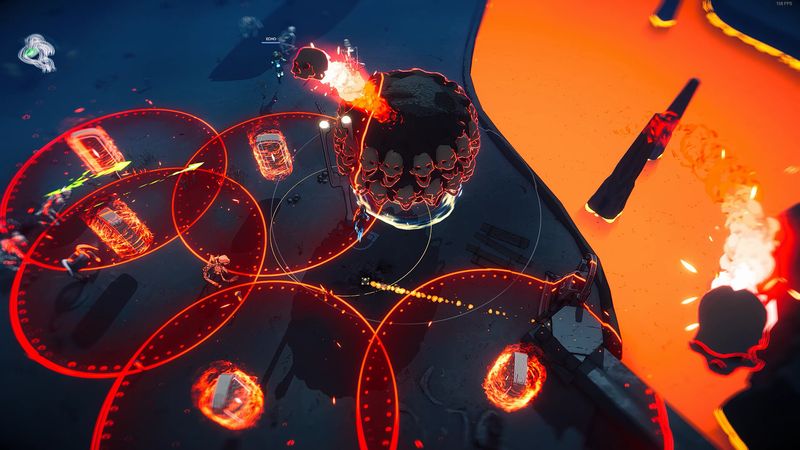
Visuals and Graphics
Gatekeeper’s art style is crisp and readable. The top-down perspective pairs well with clear enemy silhouettes and satisfying hit effects. Mob design is strong — enemies are visually distinct and expressive — though later-stage screens become crowded, reducing clarity. A visibility slider or contrast options would go a long way to solve that, and it’s something players and I have called for.
Sound and Music
The soundtrack supports the rush of combat without becoming intrusive. SFX are punchy and give important feedback for hits, parries, and skill activations. There’s no poor voice work to note; the game leans more on musical cues and effects to set mood, which fits the design. The audio mix could use minor tweaks in late-stage fights so that ability cues don’t get lost under constant explosions.
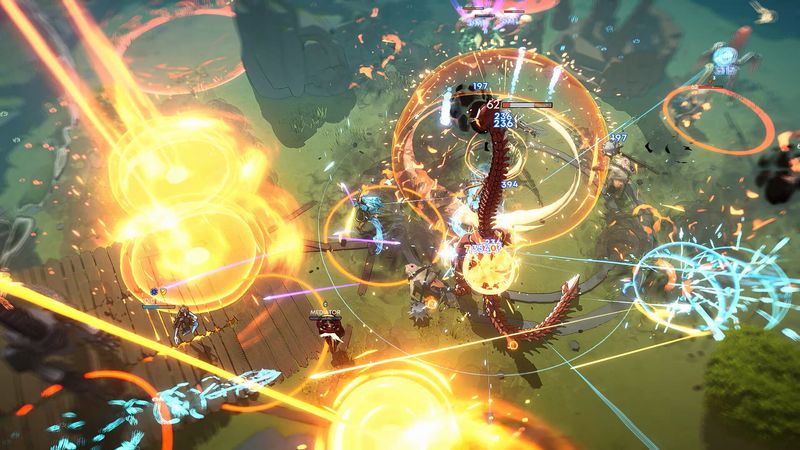
Difficulty and Replayability
Gatekeeper is challenging in a rewarding way. The loop invites farming for specific items and set bonuses, and co-op to four players keeps runs fresh. That said, the unlock and ban systems for items feel sluggish to some players: unlocking costs and additional payments to ban items can slow the sense of progression. For speedrunners, the relative consistency of item choices (pick three, guaranteed printer) is a blessing: it makes routes repeatable while still allowing for small variations.
Replayability is good but not perfect. Early to mid-playtime is exciting; later runs can feel repetitive if you chase the same loop without different, powerful item combos. The devs have been active with updates and feedback (including a substantial 1.0 patch), so I expect the meta to deepen.
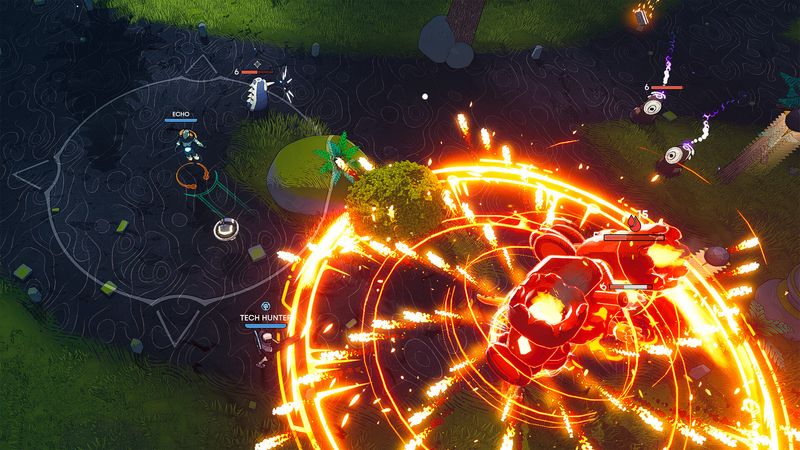
Tips and Notes
To optimize your Gatekeeper runs, use the safe point’s dummy to test DPS and ability synergies early, ensuring you select upgrades that help clear rooms faster. Prioritize mobility and cooldown reduction items since repositioning is key to overcoming the game’s biggest time sink—crowded rooms. Treat the item printer as a long-term investment, as early prints that match your active abilities can snowball into stronger runs. In co-op, assign roles for efficiency, with one player handling crowd control and another focusing on boss damage. Finally, watch for set bonus doors, as planning builds around these combos can deliver run-defining power spikes.
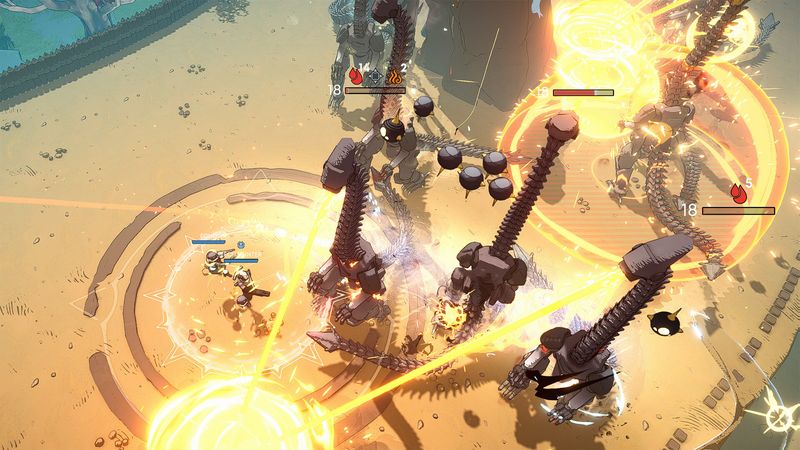
Trivia / Behind-The-Scenes
Gravity Lagoon is a small indie studio and Gatekeeper is their first title to receive wide publisher support from HypeTrain Digital. The studio has been responsive to feedback, shipping frequent patches and community-driven fixes since launch. That relationship is one reason I’m optimistic about balance and feature improvements.
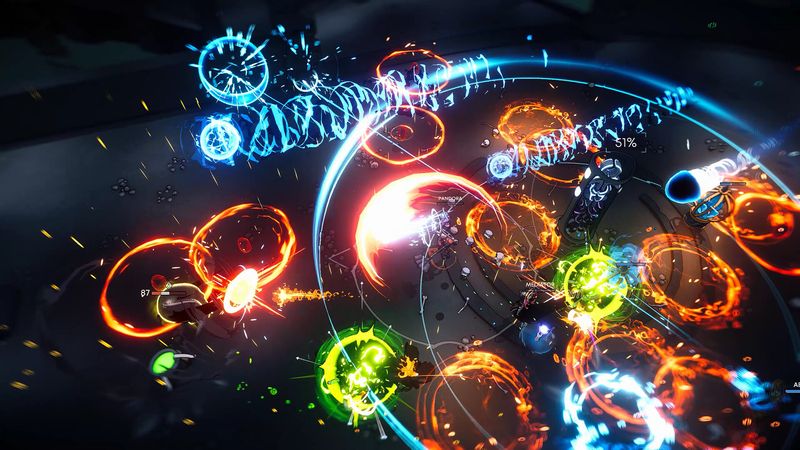
Final Thoughts
Gatekeeper is already a very enjoyable roguelike with strong core systems, solid pacing, and genuine moments of build creativity. It needs polish in mobility, some rebalancing of skills and enemy toughness, and UX tweaks for late-stage visibility and menu flows. For players who enjoy Risk of Rain-style loops but want more control over build direction, this is a recommendable purchase.
Rating: 4 out of 5 stars
If you enjoy tight runs, active decision-making, and a game that rewards learning and planning, Gatekeeper is worth your time. It is especially promising for speedrunners willing to explore build routes now and watch the meta evolve as the devs refine balance.

